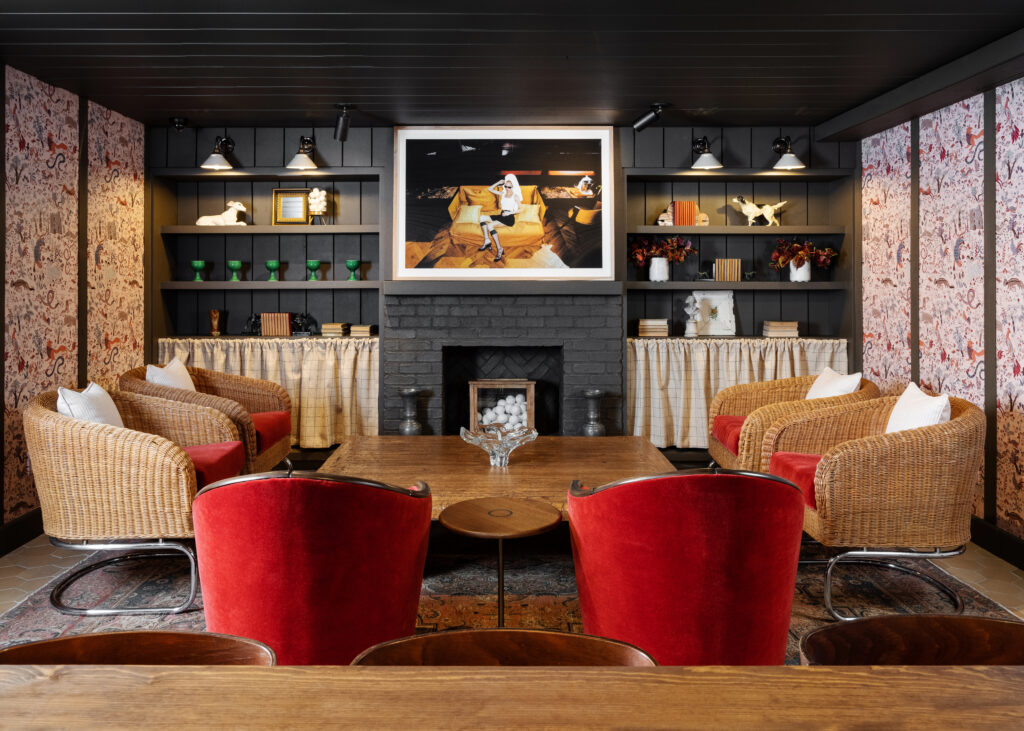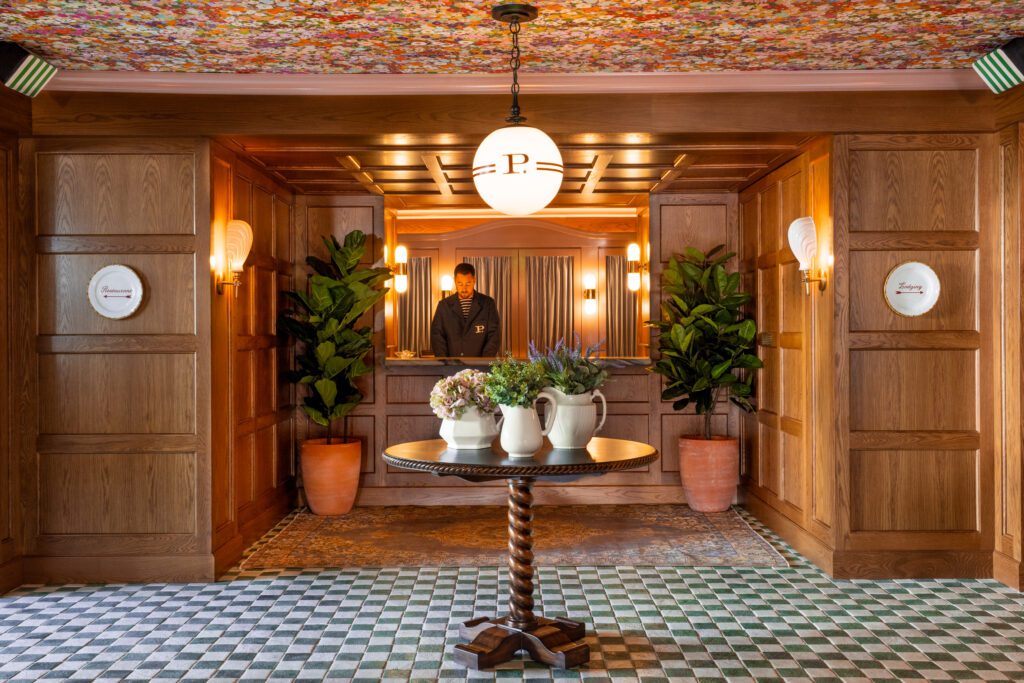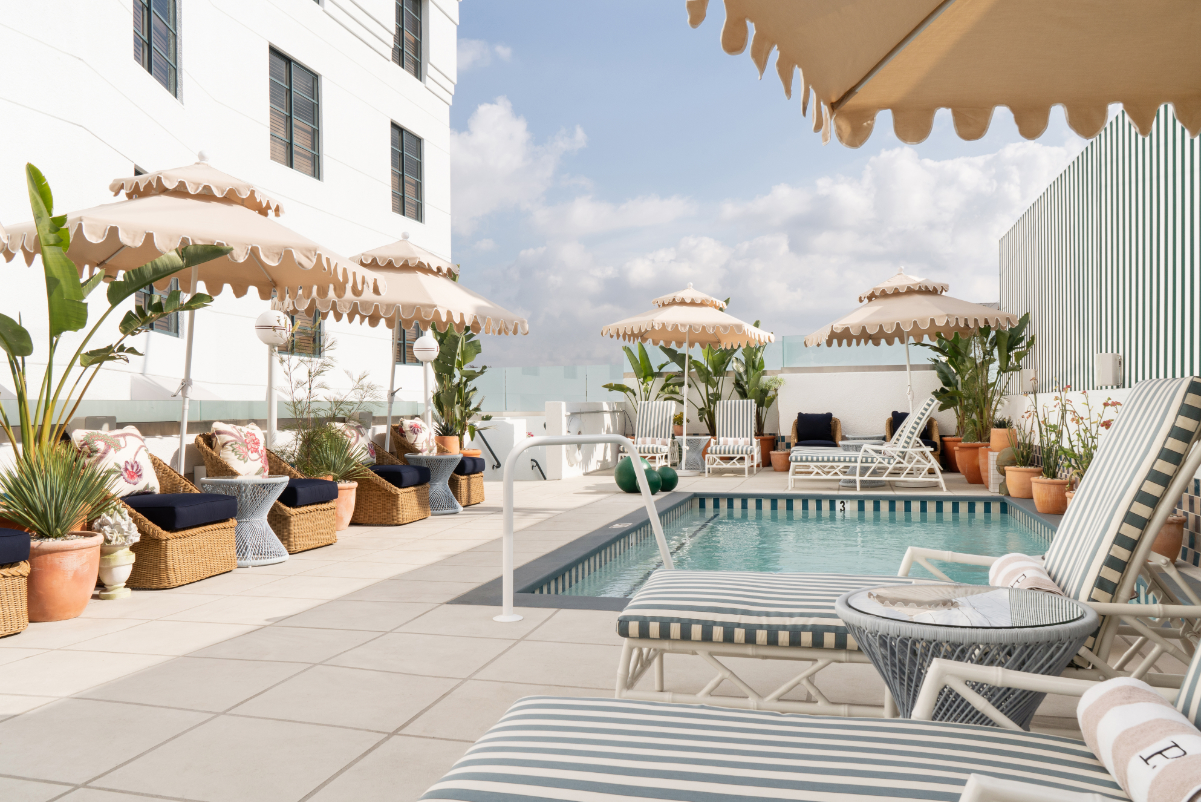Skift Take
No, it's not a low-carb diet club. Palisociety is a brand of 15 boutique hotels. Its design philosophy represents a percolating sector trend.
Some hoteliers take a stand-back approach, outsourcing most of the concept creation and design. Then there’s Palisociety’s founder and CEO Avi Brosh — who’s involved in every last detail.
Brosh’s proprietor-driven method seems to have delivered early wins for the quirky-meets-luxury boutique hotel brand. Brosh started the Los Angeles-based hotel group in 2008, and the portfolio now includes 15 hotels, with five more to open this year. During the pandemic, Palisociety acquired the boutique brand Arrive (now called Arrive by Palisociety). It’s launching another brand, Le Petit Pali, this summer.
The brand’s proprietor-driven DNA is now very much of the moment as more and more travelers want to experience a creative person’s point of view.
“Everything is very singular in its vision,” Brosh said.
The Palisociety team — which includes his wife, son, and daughter — designs everything in-house, such as the uniforms, graphics design, food-and-beverage concepts, and playlists for the sound systems. Many of the brand’s furniture pieces are even designed by the Palisociety team.
“Nothing is really design-by-committee,” Brosh said. “There aren’t a lot of outside voices that touch the brand other than our internal team.”
Yet as the brand grows, the question arises of whether Brosh and his family continue to put their stamp on everything. Perhaps the game plan is to reach a certain level of success and then sell out to a big brand with scale expertise like Hyatt or IHG, the way similar brands Joie de Vivre Hotels, Alila Hotels & Resorts, Destination Hotels, Thompson Hotels, and Kimpton Hotels have over the years.

Creating Proprietor-Driven Properties
Palisociety began as a development company for urban and residential projects in 1998. Back then, it was called Paligroup, based on where Brosh was living at the time — the Pacific Palisades neighborhood of Los Angeles.
However, Brosh stumbled into hospitality when one of the properties he got involved with seemed to work better as a hotel than a traditional development property.
Coming up with a concept was the easy part.
“I thought that it was an opportunity at the time to create a hotel that spoke more to a very proprietor-driven expression of a property,” Brosh said.
He called in favors from friends in the industry to get his vision up and running, and the theatrically designed Palihouse West Hollywood was born. The overarching aesthetic shouts “hip, theatrical inn,” and it’s likely to please readers of Monocole, Paper, or Travel + Leisure — though it’s not aimed at the masses.
“What I was experiencing, myself as a customer, was that my favorite hotels were the ones where I related to the person building them, or making or designing them as opposed to larger chain-style properties,” Brosh said. “So I thought, ‘I’m going to do a hotel that is everything I like.’”
As it turned out, people liked what Brosh liked, too. So Brosh thought that if he continued to create hotels, he’d do so in the same vein.
“I wanted to keep making hotels where I could get inspired by the place-making aspect of them, whether that’s design, location, buildings, the team, and usually it’s a combination of all of those things,” said Brosh.
Now, Brosh considers himself an innkeeper rather than a hotelier —even though the scale of his company leans toward the latter. He feels the innkeeper distinction offers plenty of room for growth.
“I think of our hotels more as neighborhood inns as opposed to transactional hotels,” Brosh said. “There’s room in every market for a small neighborhood inn that the locals champion and make it their local watering hole, and where they recommend their friends and family to stay.”

Local Design That’s Not Gratuitous
Because Palisociety considers its hotels neighborhood-centric, the point is to feel the character of the city you’re in. Still, Brosh’s goal isn’t to make it too obvious.
“For me, the real delicate dance is, ‘How do you create something that feels local but isn’t so on-the-nose and lazy in choice from a design perspective?’” Brosh said.
You notice, Brosh said, that in Nashville, many hotels, given the city’s legendary musical venues, will put guitars on the walls.
“That is too gratuitous and too on-the-nose,” said Brosh.
To keep from turning to the cliche, Brosh likes to come at design from a “residential mindset.”
“I think to myself, a really chic person who lives in Nashville would not have a guitar on their wall unless they’re a musician and maybe have a studio, and in that environment, it makes sense — but in your chic bedroom, would you have a guitar on your wall? No,” said Brosh.
Instead, someone in Nashville, he said, may have certain fabrics or materials or a tone to their style that would harken to being in the Southeast. For their Palihotel San Diego, which opens around May, Brosh is bringing in California vibes, but very distinct ones.
“It feels kind of preppy, it feels kind of old school; there’s a navy base, so it feels nautical, so I might tell myself a story about that, and I may pick up on those themes with respect to the design,” said Brosh.
In Seattle, Brosh went with darker green tones, fireplaces, and leather.
“I don’t want to wake up in Seattle in a bright white room pretending like I’m in a tropical environment — I want to feel like I’m waking up in Seattle, but I don’t need to have something so emblematic of Seattle that it feels kind of lazy,” said Brosh.
So, guests won’t see any pictures of the Space Needle plastered on the walls.
Even though the properties are neighborhood-centric, you’ll still get a common feeling at all of the hotels.
“The tone, the approach, and personality are going to be consistent because it’s all going to be driven by a singular team,” Brosh said.
Have a confidential tip for Skift? Get in touch
Tags: boutique hotels, future of lodging, hotel design, independent hotels, luxury hotels
Photo credit: The pool deck at the newly renovated Palihouse West Hollywood. Photo by Caylon Hackwith. Source: Palisociety.
